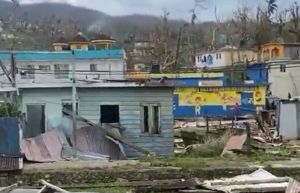An estimated 120,000 people gathered to protest against Prime Minister Shinzo Abe's new defense policies. The roads outside Tokyo's parliament were filled with thousands of protesters - not only those who are part of the labor union and leftist activists - but mothers who brought along their children with them and students who carried placards and yelled slogans. The new security legislation is expected to pass as soon as Sept. 27, the Associated Press reported.
The crowds screamed, "No to war legislation!", ''Scrap the bills now!" and "Abe, quit!" in what seems to be one of the biggest demonstrations in Japan's history. If these new defense policies pass, they would expand the role of Japan in the reinterpretation of the nation's constitution that renounces war, something they abided since World War II.
Japan's lower house approved the legislation already and the upper chamber is expected to endorse it, BBC News reported. The country is prohibited from using force to settle disputes unless it is for self-defense. This revision will now allow "collective self-defense" to defend their allies who are under attack.
Mothers Against War, a group that was only established in July, was able to gain popularity through Facebook. They submitted 20,000 signatures of people who are against the legislation to Abe's office on Friday, but have had unsuccessful results.
"I'm afraid the legislation is really going to reverse the direction of this country, where pacifism was our pride," said 44-year-old mother who only identified herself as A. Hashimoto, noting that politics is sensitive in her five-year-old son's school, Boston Globe reported. "I feel our voices are neglected by the Abe government."
"It is much different this time, and there are relatively few young people involved,'' said political analyst, Yukio Okamoto. "Our generation and housewives, these people are demonstrating in a much more peaceful manner.''
If these bills pass, three conditions have to be followed before the Japanese military can use its forces abroad, according to the Inquisitr:
"Japan is attacked, or when a close ally is attacked, and the result threatens Japan's survival and poses a clear danger to people;"
"There is no other appropriate means available to repel the attack and ensure Japan's survival and protect its people;"
"Use of force is restricted to a necessary minimum."
Watch the video below:
© 2025 HNGN, All rights reserved. Do not reproduce without permission.








